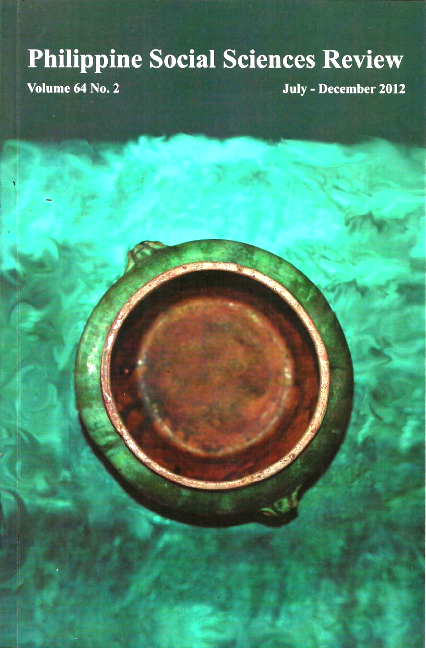Urbana at Felisa: Ideological Reproduction of Femininity in Philippine Education, 1864-1938
Abstract
Colonialism facilitated and transformed the production of knowledge through the colonial school and Christianity, which became powerful both as ‘Ideological State Apparatuses’ (ISAs) and ‘Repressive State Apparatuses’ (RSAs). Representations (or misrepresentations) of femininity transformed and socialized women’s values and attitudes at home, school, and church through the processes of catechization, sanitization, and sanctification. Presbitero Modesto De Castro’s Urbana at Felisa, analyzed from an Althusserian perspective, was a bestseller manual de urbanidad in the nineteenth century and a reference and teaching material for character education in the mid-twentieth century. Didactic literature facilitated the assimilation or reproduction process engendered by the colonial agenda among middle class and urbanized women in Christianized communities.With Urbana at Felisa as colonial apparatus, the ideological reproduction of femininity highlighted in the literary text includes the ideology of the pious woman; the ideology of motherhood and domesticity; ideology of purity, chastity, and virginity; and ideology of inferiority. These stereotypical beliefs on femininity have been incorporated in the colonial schools during the 19th and 20th centuries.
The study is divided into five themes: (1) (Re)introducing Urbana at Felisa, (2) Locating Urbana at Felisa in the 19th and 20th Century Colonial Ambit, (3) Ideological Reproduction of Femininity in Urbana at Felisa; (4) Respect for Authority is Essential in Colonial Education; and (5) Urbana at Felisa as an Educational Apparatus.
Published
2014-03-03
How to Cite
DELOS REYES, Charita A..
Urbana at Felisa: Ideological Reproduction of Femininity in Philippine Education, 1864-1938.
Philippine Social Sciences Review, [S.l.], mar. 2014.
ISSN 2672-3158.
Available at: <https://journals.upd.edu.ph/index.php/pssr/article/view/4048>. Date accessed: 31 aug. 2025.
Section
Articles
Keywords
feminism, femininity


